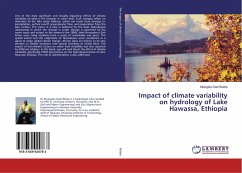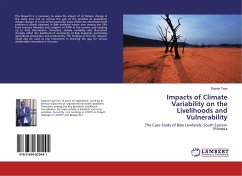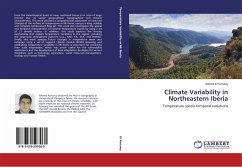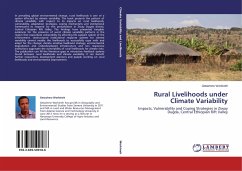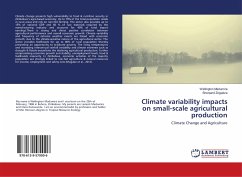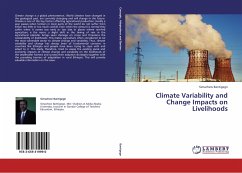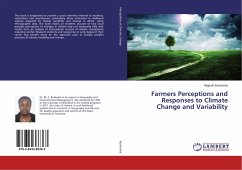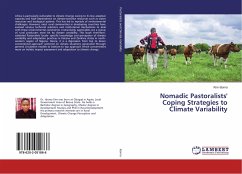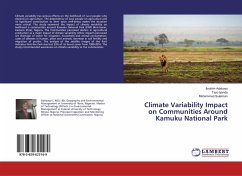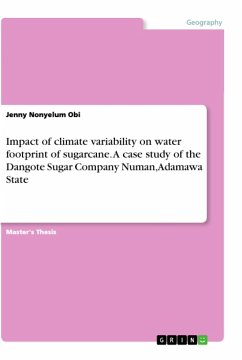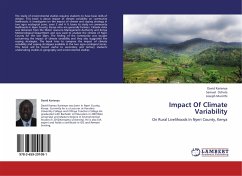
Impact Of Climate Variability
On Rural Livelihoods In Nyeri County, Kenya
Versandkostenfrei!
Versandfertig in 6-10 Tagen
32,99 €
inkl. MwSt.

PAYBACK Punkte
16 °P sammeln!
The study of environmental studies requires students to have basic skills of climate. This book is about impact of climate variability on community livelihoods. It investigates on the impact of climate and coping strategy in two agro ecological zone; zone 2 and 4. It bases its study on community livelihoods in Nyeri County, Kenya who are generally farmers. Climatic data was obtained from the Water resource Management Authority and Kenya Meteorological Department and was used to analyze the climate of Nyeri County for the last 30yrs. The feeling of the community was sought concerning the impact...
The study of environmental studies requires students to have basic skills of climate. This book is about impact of climate variability on community livelihoods. It investigates on the impact of climate and coping strategy in two agro ecological zone; zone 2 and 4. It bases its study on community livelihoods in Nyeri County, Kenya who are generally farmers. Climatic data was obtained from the Water resource Management Authority and Kenya Meteorological Department and was used to analyze the climate of Nyeri County for the last 30yrs. The feeling of the community was sought concerning the impact of climate variability and they also suggested the coping strategies. The book tries to compare the impact of climate variability and coping strategies available in the two agro ecological zones. This book will be found useful to secondary and tertiary students undertaking studies in geography and environmental studies.



